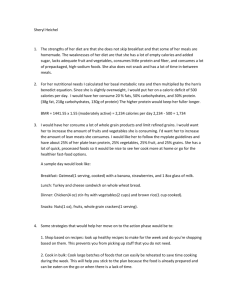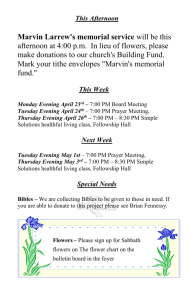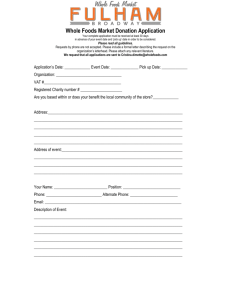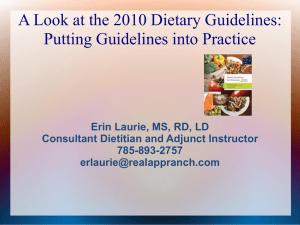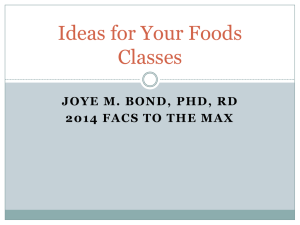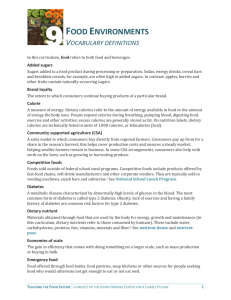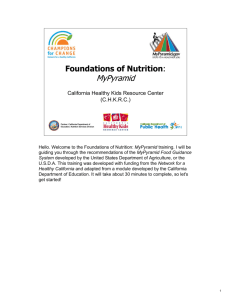Nutrient Dense Foods
advertisement
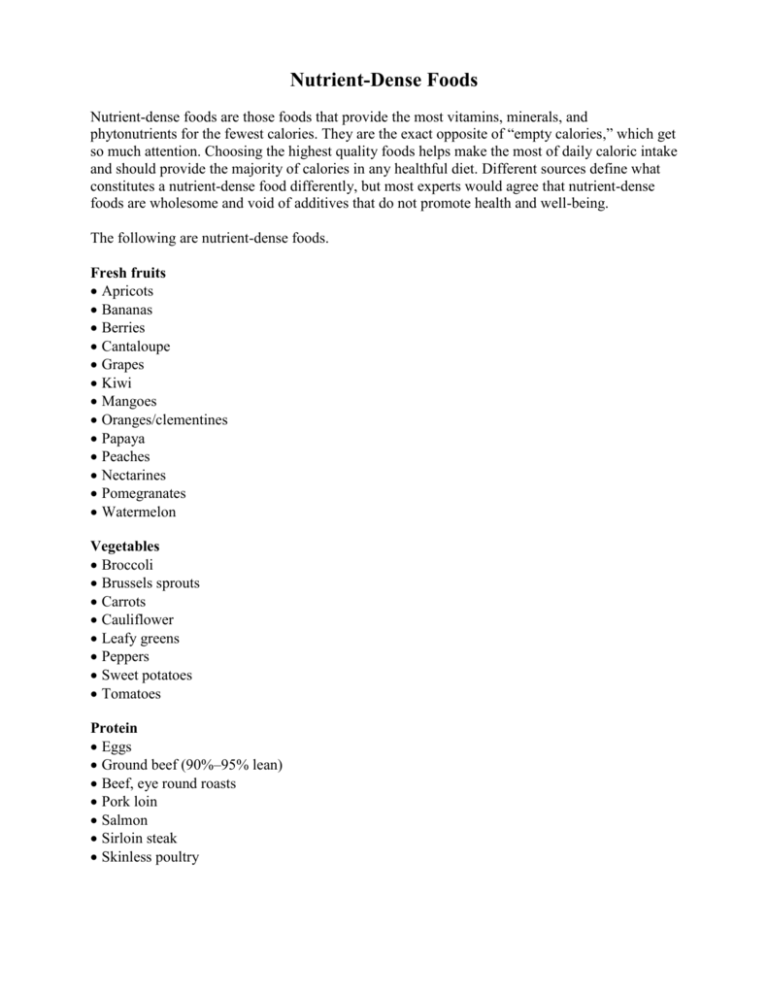
Nutrient-Dense Foods Nutrient-dense foods are those foods that provide the most vitamins, minerals, and phytonutrients for the fewest calories. They are the exact opposite of “empty calories,” which get so much attention. Choosing the highest quality foods helps make the most of daily caloric intake and should provide the majority of calories in any healthful diet. Different sources define what constitutes a nutrient-dense food differently, but most experts would agree that nutrient-dense foods are wholesome and void of additives that do not promote health and well-being. The following are nutrient-dense foods. Fresh fruits Apricots Bananas Berries Cantaloupe Grapes Kiwi Mangoes Oranges/clementines Papaya Peaches Nectarines Pomegranates Watermelon Vegetables Broccoli Brussels sprouts Carrots Cauliflower Leafy greens Peppers Sweet potatoes Tomatoes Protein Eggs Ground beef (90%–95% lean) Beef, eye round roasts Pork loin Salmon Sirloin steak Skinless poultry Dairy Reduced-fat cheese Low-fat cottage cheese Skim or low-fat milk Fat-free or low-fat yogurt Breads/grains/cereals Amaranth Barley Bread, 100% whole wheat or grain Brown rice Bulger Cereals, whole grain or bran Crackers, whole wheat Oats and oatmeal Pasta, 100% whole wheat Pita bread, whole wheat Quinoa Spelt Tortilla, whole wheat Canned foods Beans and lentils, canned or dry Fruit in water or own juice Sardines Soup, low sodium Tuna, lite in water Vegetables (including tomato sauce) Frozen foods Fruit Fruit-juice bars Vegetables without sauce Veggie burgers Waffles, whole grain Packaged snacks Dried fruit Nuts, unsalted Popcorn, air popped or lite Sunflower seeds Dressings/oils/sauces Fruit-only spreads or low-sugar spreads Herbs and spices Hummus Oil, canola, olive, and walnut Salad dressing, low fat Salsa Tomato sauce, no added salt Beverages 100% fruit juice Vegetable or tomato juice, low sodium Tips for shopping Look for deep, rich colors Choose fruits and vegetables that are deep and rich in color. Darker produce tends to have a higher vitamin and mineral content. Choose nutrient-dense products Select whole-grain products, lower-fat dairy products, lean meats, seafood, eggs, beans, and nuts. Avoid foods that are refined or overly processed. Shop around the perimeter Do most of your grocery shopping around the perimeter of the grocery store, where all of the freshest foods are. Go up and down the aisles for only select items, such as tomato sauce, dried beans, and cereals. Drink water Most beverages do not provide nutrient-dense calories. References and recommended readings Clemson Cooperative Extension. Nutrient density. Available at: http://www.clemson.edu/extension/hgic/food/nutrition/nutrition/dietary_guide/hgic4062.html. Accessed January 27, 2012. Forman A. Foods with more for less: rich in nutrients, low in calories. Environmental Nutrition. 2008;31. Review Date 1/12 G-0583
